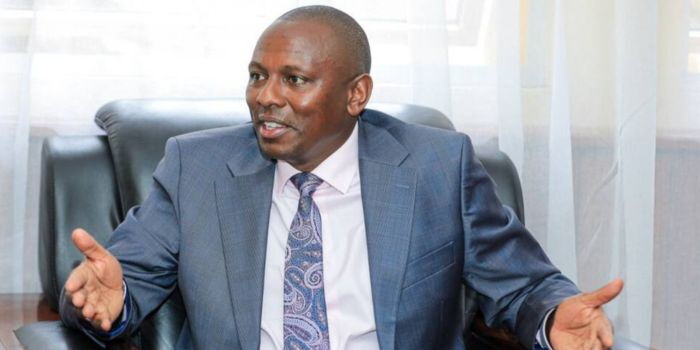Kikuyu MP Kimani Ichung’wah on Wednesday, November 6, broke down the government’s thinking behind plans to convert diapers and sanitary towels from zero-rated to exempt status under the Eco Levy.
While speaking before the National Assembly, Ichung’wah said the bill was meant to protect Kenyans from substandard products imported from abroad.
“Kenyans from the manufacturing industry appeared before the finance committee and told them that We are killing our local manufacturing industry by encouraging imports rather than local manufacturing,” the lawmaker observed.
The Eco Levy, brought forth by Treasury Cabinet Secretary John Mbadi, seeks to reclassify the products including sanitary towels and diapers such that they will be slapped with Value Added Tax (VAT) going forward. In other words, the products will no longer be taxed at zero per cent.
Sifa Pad & Praise Project sanitary pads factory in Kajiado County, that was launched on Thursday, February 9, 2023.
Facebook/Mama Rachel
According to Ichung’wa, the public was misinformed and made to believe that parliament was pushing a bill to levy tax on all diapers and sanitary towels, whilst the intention was to impose a hefty levy on imported products as a means to encourage local high-quality manufacturing.
He went on, “It was players from the local manufacturing industry through KEPSA that brought proposals to protect manufacturers by introducing levies on products being brought in from China, the Far East, and Europe including diapers and sanitary towels. The public was incited to believe that the National Assembly was levying tax on all diapers and sanitary towels.”
Further, the MP also appeared to blame leaders for misinforming the public by ‘saying what was popular instead of what is right’.
Ichung’wah insists the anti-Finance Bill protests that rocked the country in June and July were misinformed as the youth were protesting against a bill that they did not fully comprehend. He also blamed leaders for failing to balance public participation exercises with proposals and bills that lawmakers intended to push.
The bigger picture: The MP’s sentiments come just as Kenyans are grappling with another wave of uncertainty after their short-lived win regarding the taxation of both locally and internationally manufactured diapers and sanitary towels.
In June, National Assembly Finance Committee Chair Kuria Kimani clarified the newly proposed eco levy would only apply to imported finished products.
Months later, Mbadi announced the re-introduction of the eco levy and two other bills before parliament. The two other bills are the Tax Procedures (Amendment) Bill, 2024, and the Public Finance Management (Amendment) Bill, 2024.
Mbadi attributed the re-introduction of the bills to the massive loss of revenue the government experienced due to the tax breaks issued to specific groups.
Treasury Cabinet Secretary John Mbadi addressing members at a previous parliamentary committee meeting.
Parliament of Kenya


























